- Environmental activist group Mother Nature Cambodia has been named one of Right Livelihood’s 2023 laureates.
- The award, established in 1980, recognizes groups and individuals striving to preserve the environment and those who protect it.
- Mother Nature Cambodia has played a key role in campaigns against environmentally destructive dams, logging and sand mining, resulting in the imprisonment of multiple group members and banishment of its founder.
PHNOM PENH — Mother Nature Cambodia, one of the country’s most prominent environmental activism groups, was named one of Right Livelihood’s 2023 laureates on Sept. 28, making it the first group of Cambodians recognized in the award’s 43-year history.
Born out of a refusal from the Nobel Foundation to issue awards recognizing changemakers who champion environmental and social justice issues, Stockholm-headquartered Right Livelihood rewards groups and individuals committed to advancing causes around the world. The award offers recipients “a megaphone and a shield” with what Right Livelihood calls “lifelong support” to activists striving to preserve the environment and protect those who depend on it.
“Mother Nature Cambodia is a group of fearless young activists fighting for environmental rights and democracy in the face of repression by the Cambodian regime,” Ole von Uexkull, Right Livelihood’s executive director, said in a statement. “Through innovative and often humorous protests, their activism defends nature and livelihoods, while upholding communities’ voices against corrupt and damaging projects. Despite arrests, legal harassment and surveillance, they continue to fight relentlessly for Cambodians’ environmental and civic rights.”
Right Livelihood’s jury said Mother Nature Cambodia was receiving the award “for their fearless and engaging activism to preserve Cambodia’s natural environment in the context of a highly restricted democratic space.”
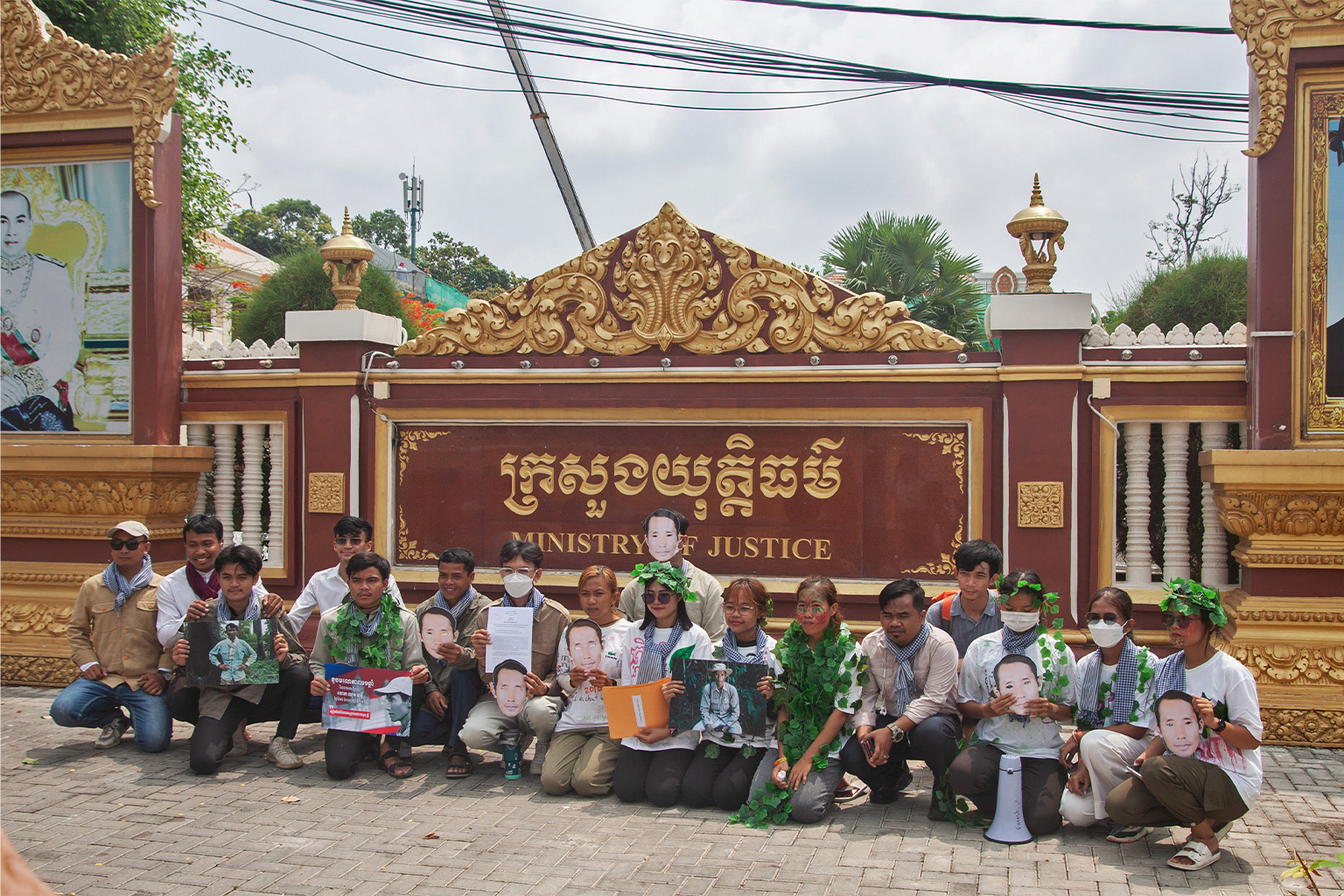
For 11 years, Mother Nature Cambodia has campaigned against environmentally destructive development projects, exposed questionable sales of Cambodia’s natural resources, and galvanized young Cambodians to defend the country’s ecosystems.
With almost half a million followers on Facebook, the country’s primary online medium, Mother Nature Cambodia has risen to national recognition over a period during which ongoing crackdowns on dissidents, the free press and civil society more broadly have seen many within these spaces exiled, arrested or resorting to self-censorship.
“Firstly, it is going to act as a very important counter-message to the lies and deceit that the [Cambodian People’s Party] regime has been saying about us for years, that we are basically an illegal entity hellbent on bringing chaos, destruction, etc. to the country,” Alejandro Gonzalez-Davidson, founder of Mother Nature Cambodia, said of the Right Livelihood award.
“Many Cambodians will hear about Mother Nature Cambodia receiving this major international award and will realize that what we have been doing has not only been completely legal, but effective too,” he added. “Receiving this award will also act as a call for more young Cambodians to join the team, that’s for sure, as it will also add an element of ‘pride’ to being a part of the team.”
Gonzalez-Davidson said he can’t disclose the prize money associated with the Right Livelihood award for security reasons, noting that the financial element of becoming a Right Livelihood laureate may be used by the Cambodian government to attack the activist group.
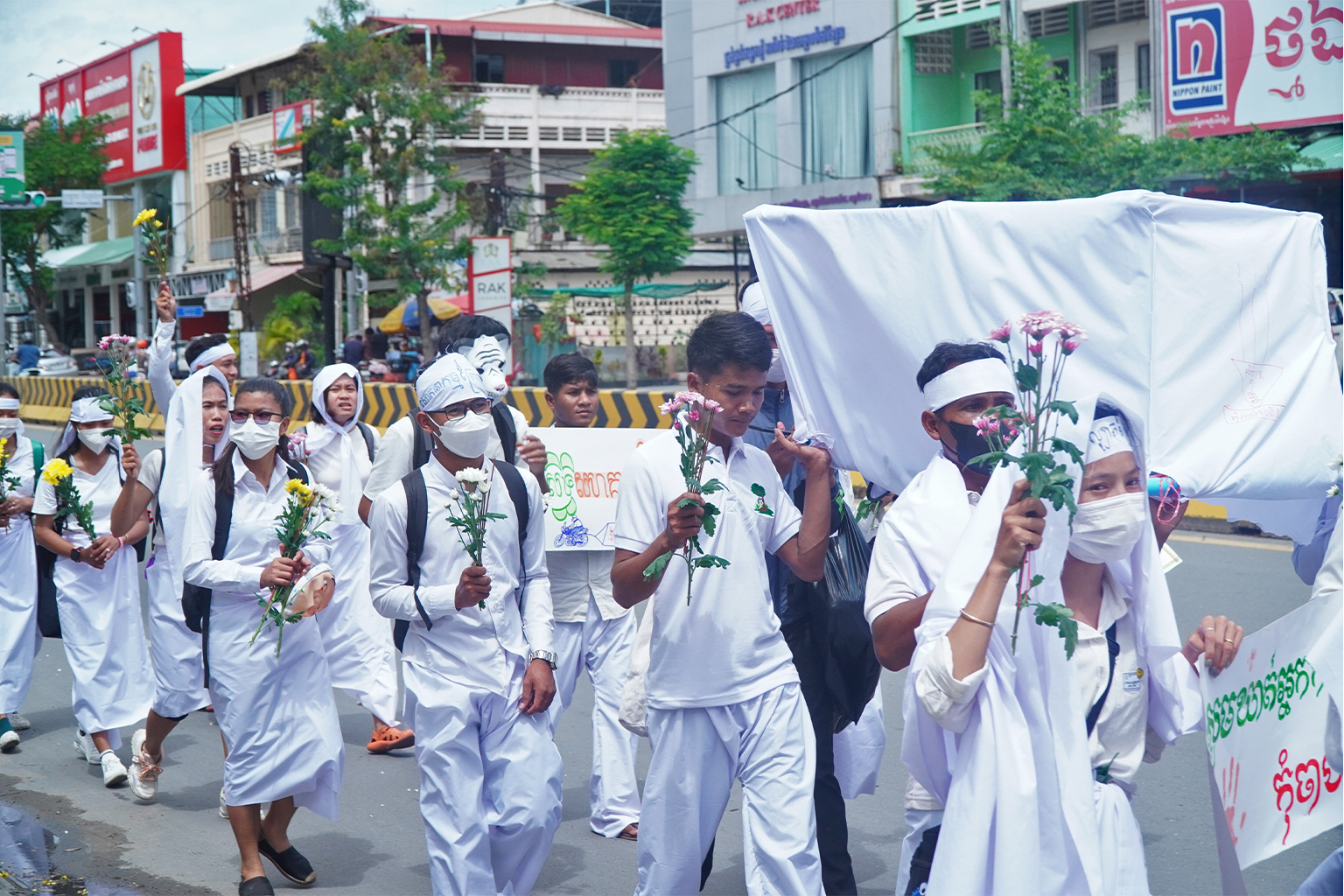
“[The money will be] used in a way that maximizes chances of Mother Nature Cambodia being a thorn in the side of the Hun regime for many years to come, as long as they continue to treat the country’s nature as a way to unlawfully enrich themselves,” Gonzalez-Davidson said.
But Mother Nature Cambodia hasn’t been immune to the government’s retaliation against its activism. The success of its early activism put it in the crosshairs of a government eager to silence the predominantly youth-led group and its supporters.
Things came to a head in 2015, when Gonzalez-Davidson was deported and blacklisted from entering the country following Mother Nature Cambodia’s successful campaign to halt a potentially destructive hydropower dam from being built in the Cardamom Mountains.
The proposed 105-megawatt Stung Cheay Areng hydropower dam was set to inundate 10,500 hectares (26,000 acres) in what was then Central Cardamoms National Park, one of Cambodia’s most significant intact rainforest landscapes that was this year merged with Southern Cardamoms National Park. The dam would have displaced some 1,500 people, most of them from Indigenous groups that have long been disregarded by the Cambodian government.
Mother Nature Cambodia spearheaded a campaign against the dam, working with the Indigenous Chong communities that call the Areng Valley in the Cardamoms home. The $300 million dam was set to flood their homes, forced the clearing of vast tracts of old-growth rainforest, and destroyed the habitats of an estimated 31 species listed as threatened on the IUCN Red List, including the critically endangered Siamese crocodile (Crocodylus siamensis), the endangered Asian arowana or dragonfish (Scleropages formosus), and further disrupted the migration paths of endangered Asian elephants (Elephas maximus).
But this rare display of unified resistance to Cambodia’s infrastructure development plans quickly drew the ire of the government, which moved to have Gonzalez-Davidson deported. Despite interventions from civil society and even pleas to the Cambodian king to intervene, Gonzalez-Davidson was deported on Feb. 5, 2015, in what was largely seen as an attempt to decapitate Mother Nature Cambodia’s leadership.
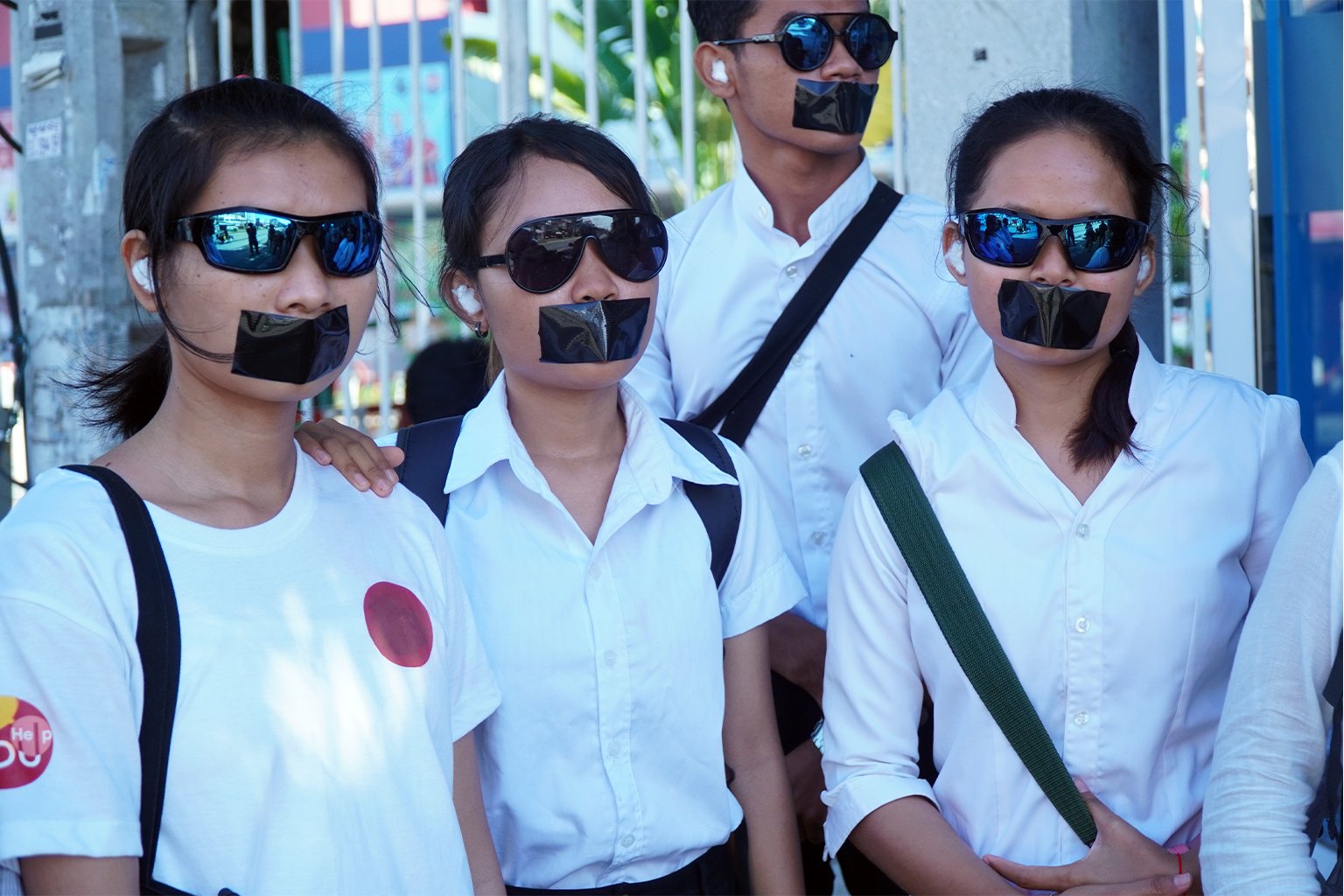
The group has not only survived the blacklisting of its founder — it has doubled down, expanding its activism campaigns to broader environmental issues across Cambodia.
Three Mother Nature Cambodia activists were jailed for 10 months in August 2015 after campaigning against a destructive marine sand-dredging operation threatening both mangrove ecosystems and fishing communities’ livelihoods in the country’s southwestern Koh Kong province. The three were released but ordered to pay $25,000 in compensation to the sand mining company and $500 each in legal costs. Gonzalez-Davidson was acquitted, but not until 2019, and was unable to enter Cambodia to stand trial due to the government denying him a visa.
Cambodia’s Ministry of Interior stripped Mother Nature Cambodia of its officially registered NGO status in 2017 in response to the group’s continued activism, although many saw the move as a reaction to the support the young activists were gaining.
Even their more innocuous activities began to attract a police response. In June 2020, members of the group were detained while riding bicycles from Koh Kong province to Phnom Penh as part of a campaign to preserve Koh Kong Krao, Cambodia’s largest island. Their bicycles were confiscated by authorities, who claimed that the group required permission from the Koh Kong provincial administration. Despite the numerous threats received, Mother Nature Cambodia has continued sounding the alarm on Koh Kong Krao, where a recent Mongabay investigation found evidence suggesting Cambodia’s armed forces are involved in illegally logging the forest that covers the island.
“The dictator wants us to stay away from politics, stay away from democracy and stay away from speaking up against the government,” said Mother Nature Cambodia activist Ly Chandaravuth, in response to winning the Right Livelihood award. “This award is a testimony that we have the right to do activism, we have the right to protect our own country and it is our obligation to do it.”
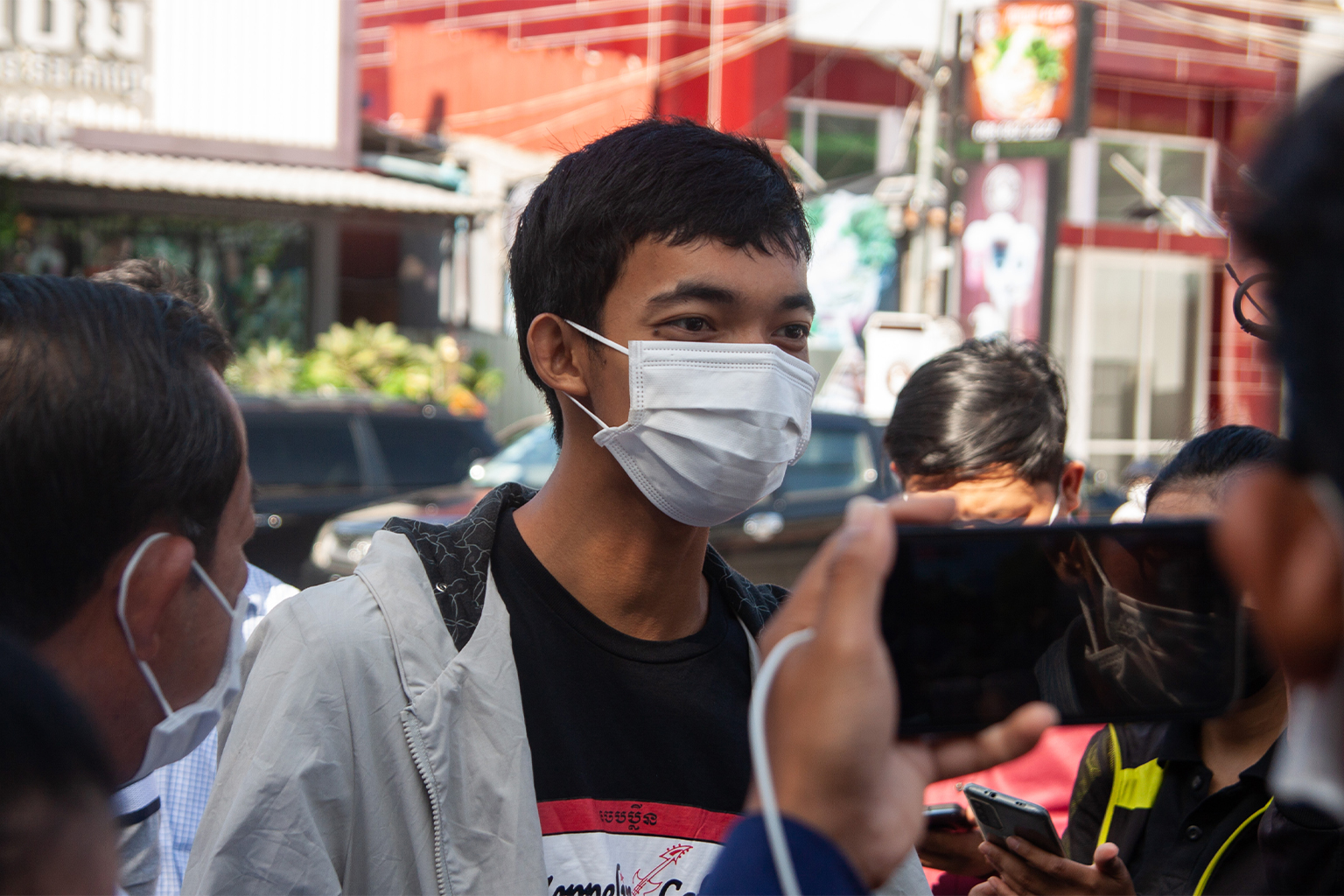
Chandaravuth was among seven members of the group who were charged with incitement and plotting to overthrow the government, with the national police officially labeling Mother Nature Cambodia as terrorists in 2021.
On June 16 that year, Chandaravuth was part of a small contingent of activists taking water samples from the Tonle Sap River, following reports that sewage was being pumped into the river in Phnom Penh, when plainclothes officers arrested the group, citing terrorism threats.
Then a 22-year-old law student, Chandaravuth said at the time that he felt the prosecutor’s investigation was unfair and that numerous legal procedures were skipped over during his arrest, largely on account of his association with Mother Nature Cambodia.
His arrest came nine months after three other Mother Nature Cambodia activists were arrested while planning to stage a one-woman protest against the in-filling of lakes in Phnom Penh — a move that experts have warned will increase the risk of severe flooding in a city ill-equipped to deal with heavy rain. The issue was also picked up by U.N. bodies, which warned the government against forcibly evicting residents from the lake.
Nevertheless, Chandaravuth and the five other activists were jailed while awaiting trial on charges of incitement, treason and insulting the king.
At a press conference on Sept. 28, Phun Keo Reaksmey, another Mother Nature Cambodia activist who was imprisoned alongside Chandaravuth, said she knew the obstacles that she would face when joining the environmental group, but that the urgency of defending of Cambodia’s natural resources outweighed the threat of prison.
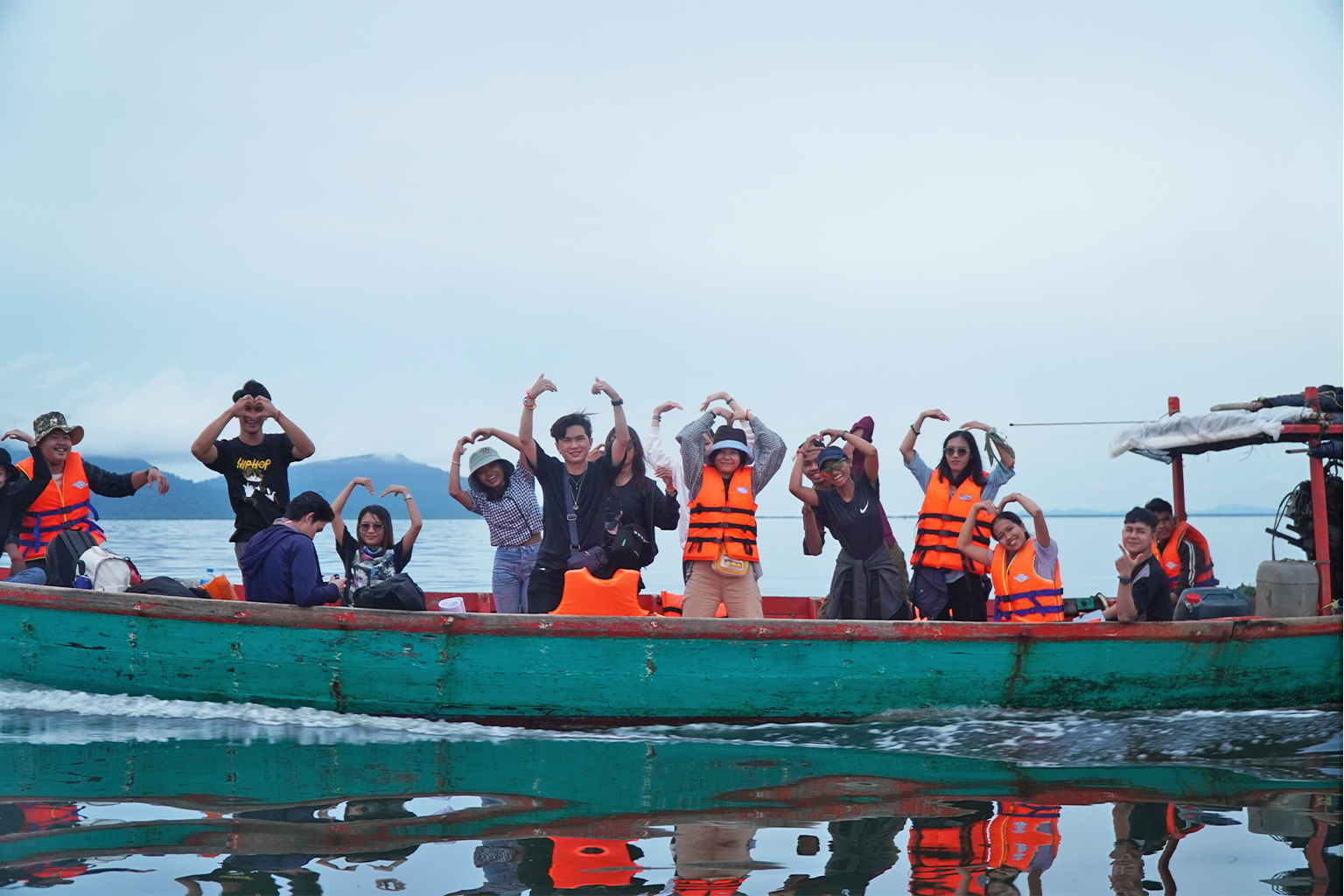
“It changed my routine from that of a young kid, but what I do is not for me, it is not just to keep Mother Nature Cambodia alive, it’s to keep Cambodia’s environment alive,” Reaksmey said. “How can I face my daughter if they know that the previous generation did nothing to change things. We were jailed because we tried to protect the environment and because we don’t want our children to be jailed for doing this or for defending human rights.”
Reaksmey, 22, spent 14 months in prison due to her activities with Mother Nature Cambodia.
All were eventually released in November 2021 and went on to scoop up a Frontline Defenders award that same year, but the threat of re-arrest remains heavy, and the charges of incitement and treason still loom large over the future of the young activists.
During the press conference, the activists addressed Cambodia’s recent change in leadership following the July 2023 election that saw Hun Manet, son of longtime ruler Hun Sen, take over from his father in the role of prime minister. But the transition of power, Chandaravuth and Reaksmey said, will likely bring about little change to the shrinking space that Mother Nature Cambodia operates within. The group’s founder, Gonzalez-Davidson, shared the sentiment while also calling for optimism.
“I think that, despite the warning signs we are seeing — increased logging, resumption of sand mining for export along the Mekong River — we have to try and stay positive, and give them a chance,” Gonzalez-Davidson said. “Perhaps this new generation of leaders, once they are in a true position of leadership, decides that there is more to benefit from leaving the forests and nature as they are, than from destroying it? Time will tell.”
Banner image: Mother Nature Cambodia’s activists. Image courtesy of Right Livelihood.
Cambodian activists commemorate 11th anniversary of Chut Wutty’s murder







